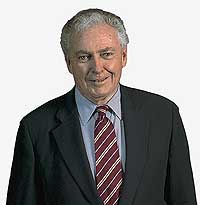Message from the President
History Passed This Way
Virginia’s General Assembly, America’s oldest representative legislature, met January 26 in the Hall of the House of Burgesses at Colonial Williamsburg’s reconstructed Capitol, inviting President Colin Campbell to speak. An excerpt of his remarks:
This quadrennial commemorative session occurs on the site where representative government in Virginia threw aside its colonial shackles and reached for independence. This Capitol . . . was at the heart of our Revolutionary City.
The man who would lead the fight—General George Washington—received his first acclaim here. . .
Here, a country lawyer by the name of Patrick Henry would decry the powers of tyranny and the arbitrariness of a distant king.
Some say the first shots of the Revolution were fired at Lexington. In a literal sense, that’s true.
But in a substantive sense, Patrick Henry unleashed the first volley in this room—a volley that inspired cries of “treason”—when he attacked and denounced the Stamp Act.
It was also here that George Mason proposed the Virginia Declaration of Rights, precursor to the Bill of Rights. . . .
Such were the great events of the past . . . the rumblings of revolution, the foundations of nationhood . . . removed, perhaps, but not so removed that we cannot reach back and understand.
And that’s what we try to do here every day. Colonial Williamsburg works to cut the distance between the past and the present—to make the events of long ago immediate. . . .
The Burgesses sought to craft the laws and policies of a demanding colonial culture. There were issues of education. Issues of infrastructure. Issues of law and order. Above all, there were issues that simply emerged from different points of view, different philosophies of governance.
Of course, the specific circumstances of the eighteenth century defined that era just as issues you are confronting define these times. Still, the dynamics of resolution and the dependence upon citizen participation to achieve political objectives bear a strong similarity to today’s realities. . . .
The Burgesses . . . were constantly pressed to find creative, workable answers.
And how else would you describe what you do today?
Indeed, the legislative process—sorting out differences, molding compromises, providing leadership . . . is essentially the same. The gilded coaches and the powdered wigs have gone away, but the trials and tribulations, as well as the satisfactions, of making laws in a constantly changing society endure.
Though it may not ease your deliberations and choices, it may be comforting to know that you share a kinship with those who preceded you—even those who once occupied this sacred space where we gather today. . . .
In effect, by being here, you acknowledge that history passed this way. Just as European civilization built upon the classical forms of Greece and Rome, Americans—working here, in Williamsburg—built anew once more, extracting lessons from past triumphs and failures, in firm conviction that they could make something better.
Historian Douglas Southall Freeman perhaps expressed it best when he said,
“We Virginians do not go to the storied shrines
of the past to do worship, but rather to gain inspiration.”
At this spot, in this historic town of Williamsburg, where the grandest experiment in political freedom and representative democracy took root, I hope you will find your own comfort and inspiration.
Colin G. Campbell
Chairman and President
Learn More:

